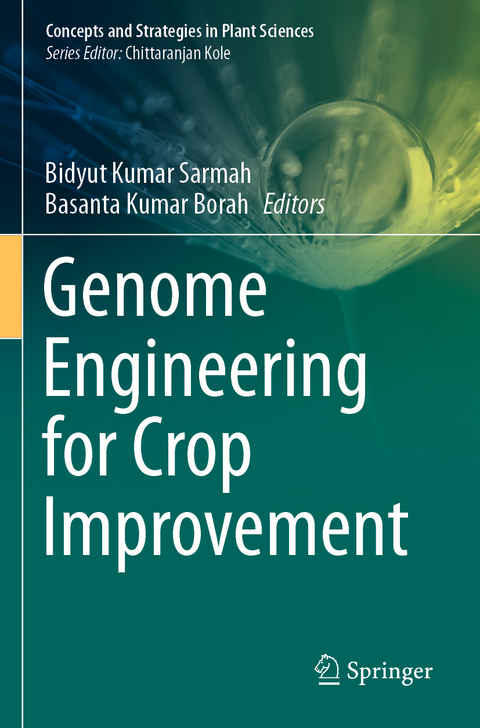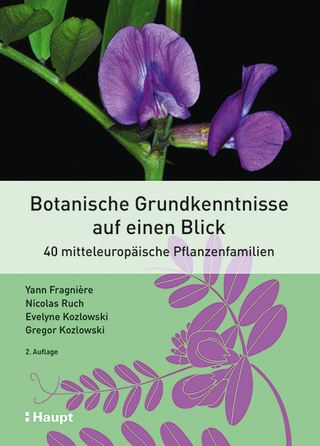
Genome Engineering for Crop Improvement
Springer International Publishing (Verlag)
978-3-030-63374-5 (ISBN)
This book serves the teachers, researchers and the students as a handy and concise reference as well as guidebook while designing and planning for use of the advanced technologies for crop improvement.
The content of the book is designed to cover the latest genome engineering techniques for crop improvement. The conventional breeding has got its limitations such as non-availability of desired genes within the genepool. In many cases, breeding has been highly used and it has nearly reached its highest limit so far as the productivity and production of crops are concerned. However, with increasing need of food and decreasing resources, including water, land, labour, etc., to feed the growing population, the alternative available ways of increasing crop productivity need to be explored and exploited. Genome engineering has a wide scope that includes technologies such as genetic engineering and transgenesis, RNA technologies, CRISPR, cisgenics and subgenics for better productivityand more efficient biotic and abiotic stress management. Therefore, the book is planned to enlighten the readers with the advanced technologies with examples and case studies, whenever possible. Efforts will be made to emphasize on general efforts on various major food crops; however, it would also be made clear that such efforts could be taken as proofs of concepts and that this could be extrapolated keeping the demand in mind.
lt;p>Bidyut Kumar Sarmah, Ph.D:
Presently, he is an ICAR-National Professor (Norman Borlaug Chair) and the Director of the DBT-North East Centre for Agricultural Biotechnology in Assam Agricultural University, Jorhat, India. His major research contribution is the development of genetically modified chickpeas for resistance against two devastating insect pests (stored grain pests and pod borers) in collaboration with CSIRO Agriculture and Food, Canberra. Professor Sarmah obtained his PhD from IARI, New Delhi and worked as postdoctoral researchers / visiting scientist in WSU, USA; CSIRO, Australia; FMI, Switzerland and AUA, Greece.
Source-Sink relationships and its effect on plant productivity: manipulation of primary carbon and starch metabolism.- Transgenic Approaches to Develop Virus Resistance in Rice.- Virus free improved food in the era of bacterial immunity.- Host-induced gene silencing (HIGS): An emerging strategy for the control of fungal plant diseases.- Genetic Engineering for Biotic Stress Management in Rice.- Genome improvement for rust disease resistance in wheat.- Novel technologies for transgenic management for plant virus resistance.- Cisgenesis: Engineering plant genomes by harnessing compatible gene pools.- Improving biotic and abiotic stress tolerance in plants: A CRISPR-Cas approach.- RNA interference (RNAi) in Functional Genomics of Wheat.
| Erscheinungsdatum | 20.04.2022 |
|---|---|
| Reihe/Serie | Concepts and Strategies in Plant Sciences |
| Zusatzinfo | XVII, 264 p. 25 illus., 24 illus. in color. |
| Verlagsort | Cham |
| Sprache | englisch |
| Maße | 155 x 235 mm |
| Gewicht | 438 g |
| Themenwelt | Naturwissenschaften ► Biologie ► Botanik |
| Naturwissenschaften ► Biologie ► Genetik / Molekularbiologie | |
| Weitere Fachgebiete ► Land- / Forstwirtschaft / Fischerei | |
| Schlagworte | cisgenics RNA-based resistance strategies • Crop improvement • Genome engineering • genome modification technologies • Transgenics • virus resistance |
| ISBN-10 | 3-030-63374-8 / 3030633748 |
| ISBN-13 | 978-3-030-63374-5 / 9783030633745 |
| Zustand | Neuware |
| Informationen gemäß Produktsicherheitsverordnung (GPSR) | |
| Haben Sie eine Frage zum Produkt? |
aus dem Bereich


